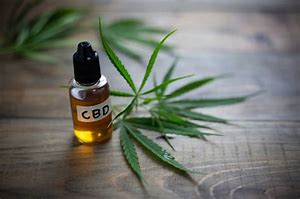
It’s quite likely you’ve been hearing more about this mysterious natural chemical called CBD (Cannabidiol) since it’s rapidly gaining popularity and availability. It’s offered in many forms and for those wanting to know more to learn whether or not to include this into their health regime, there are a number of things to know. The fact that it is currently unregulated give we consumers challenges as I’ll address later. There was a recent article titled ‘The Buzz on CBD’ in the Willy Street Co-op Reader that was helpful in this writing.
What is CBD?
One of the biggest points of confusion is its relationship to marijuana. CBD is in fact related to marijuana in its origin, however, unlike recreational and medical marijuana, CBD products do not contain large amounts of the psychotropic chemical THC (the stuff that makes folks “high”). This is an important difference between the two–in how they’re used and how laws look at them. To date 7 states have passed both medical and recreational marijuana, while 27 states have passed medical marijuana. Regarding CBD–legal in all 50 States as long as it has less than .03% THC by weight.
While cannabis is a term often used interchangeably with marijuana, it more accurately refers to a larger classification of plants. In addition to marijuana, the cannabis family also includes hemp. Hemp has a long history as an industrial product for which it’s quite well known. Unlike marijuana, hemp has very little THC and it provides the source from which CBD comes from. In summary, CBD and hemp should not be confused with psychoactive drugs (i.e. recreational and medical marijuana).
How Does CBD Work?
Without turning you into a biology expert, let’s address the basics. All cannabinoids, including CBD, produce effects in the body by attaching to certain specific receptors. Humans and animals alike have two receptors for cannabinoids–CB1 receptors and CB2 receptors.
CB1 receptors are activated in the brain–affecting the release of feel-good neurotransmitters like dopamine, serotonin and endorphins. Since CB1 receptors are mostly located in the nervous system, they affect many of the brain/body functions resulting in the fine-tuning of everything from breathing, heart rate and tissue health.
CB2 receptors are found in small quantities in the brain and larger quantities in the immune system. Active CB2 receptors alert the immune system to the presence of abnormalities within the body–leading to better protection.
CBD Benefits
The non-intoxicating marijuana extract is being credited with helping treat a number of medical issues. One of the more fascinating developments in CBD’s potential is related to treating childhood epilepsy (leading the FDA to approve an oral treatment of pure CBD for this condition). Other benefits are pain management, stress and anxiety reduction, plus sleep and immune system support. Research into cannabinoids is investigating how many other conditions would benefit–all very exciting!
Some Precautions
Here’s some inside information I’d like to share based on our son’s experience marketing CBD for pets: www.milehighpawducts.com He comes into this as a pet lover, a business/marketing background and an entrepreneur who has done his due diligence researching how to provide the best CBD product possible. Here are the challenges he’s found with this ‘Wild West’ CBD world:
Currently no regulatory agencies
Minimal routine product lab testing
Full spectrum CBD is best for more benefit, however, many are not
Merchant/banking challenges–many companies have/are refusing continuing services to CBD businesses (I’d venture a large bet that pharmaceutical lobbying/money is behind this–and I’m not a gambler).
Fletcher is addressing many of these concerns to set himself apart from the CBD herd–keeping all of his marketing and practices ethically sound and transparent. I feel benefit from his product (the big dog version) and am proud of his ethical wellness mission.
Getting Your Money’s Worth
Do your due diligence regarding quality and testing
Shop knowledgeable retail outlets
Purchase full spectrum CBD
While this information in not meant to take the place of medical advice–please consult your provider (if they are knowledgeable in this treatment option or look for one that is) prior to engaging in this new therapy.
Our quality of life means further taking responsibility–progress, not perfection Warriors!
